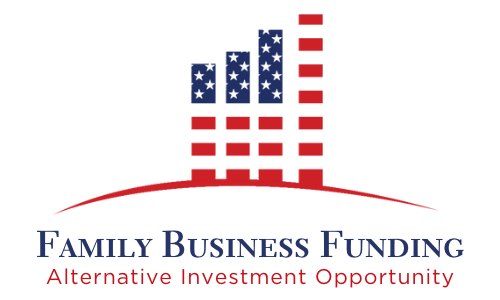For many investors, finding an investment with high yield and minimal risk can be challenging even under bullish market conditions. Historically, investment fundamentals were used to determine the value and worth of an investment. But in today’s digital landscape, the news greatly impacts what happens in the investment world quicker than ever before, as we’ve recently seen with the Evergrande Group, one of China’s largest builders, that’s currently in a debt crisis struggling to avoid default. A number of variables can make it difficult for investors to choose what investment vehicle is best, especially all the news headlines making us think twice. But as time goes on and investors diversify in the true sense of the world, one thing is abundantly clear: no one can deny the high-yield power of alternative investments.
Investment Yield Comparison
.jpg)
Let’s take a look at the different kinds of investment options out there and how they compare. Keep your eye out for how alternative investment vehicles, like the Family Business Fund, consistently come out on top.
Bonds
According to The Balance, the average annual return was about 5.3% between the years 1928 and 2018. Bonds are fixed interest investments typically through corporations or governments. Bonds have lower yields than other options in the traditional investment space.
Stocks
According to Goldman Sachs, the average return over 10 years is about 9.2% based on a 140-year average. According to Investopedia, the S&P 500 index fund is slightly higher at about 10.5% annually. Stocks have been the most well-known option among traditional investments. Since the stock market has been taken over by retail investors rather than institutional investors, it has become highly volatile which means prices can swing in either direction quickly. Investors can win big and lose big on these types of investments.
Mutual Funds
According to The Balance, the average annual return is about 9.5% over 10 years. Mutual funds are pooled among many investors and are professionally managed. They are more convenient as fund managers handle all the research and the portfolio.
Real Estate Investment Trusts (REITs)
According to Investopedia, the average annual return on this alternative investment is about 10.3% over the past 25 years. This real estate investment vehicle is the most well-known alternative investment. People love investing in real estate because they can rely on it to appreciate over time. REITs typically have a longer lockup period which means capital cannot be withdrawn until the lockup period has been met.
Alternative Funding (Debt)
At the Family Business Fund, an alternative investment fund, investors enjoy a 15% annual return. The debt investment vehicle is a combination of equity and debt financing. This is a unique opportunity for investors since they can enjoy consistent yield and are protected from the downsides of the stock market. Read below to see how that’s made possible.
Alternatives are the gold standard
Alternative investments are defined as any investment existing outside of traditional 401Ks or the stock market. Since alternatives are outside of the stock market, they are not affected by the market’s movements. Many investors use this as a strategy to hedge their portfolios against the downsides of the stock market. And with returns as high as 15%, there is no comparison to other investment types.
Once investors discover alternative investments as an option, their portfolios are benefited by the possibilities of higher returns, fixed monthly income payments, and reduced risk. The top 7 alternative investments according to Invested Wallet are:
Physical Real Estate
Real Estate Crowdfunding
Fine Art
Peer-to-Peer Lending
Personal Online Business
Commodities
Cryptocurrency
Before making any investment decisions, remember to thoroughly research and get familiar with the investment. Alternative investments are growing and becoming a prevalent choice for investors wishing to diversify their portfolios. Consider diversifying your portfolio using the model below.
.jpg)
About Family Business Fund
At the Family Business Fund, we can help you begin sifting through different alternative investing options and get you on track to a high-yield, fixed monthly income.
The Family Business Fund (FBF) was founded in 2019 to help ensure that small businesses have access to the resources needed to thrive. FBF is a SEC (Securities and Exchange Commission) Reg. D., 506C, high-yield, fixed-income fund for accredited investors.
For more information about how you can invest in the Family Business Fund, contact Douglas Muir at douglas@familybusinessfund.com or call (888) 884-6442 ext. 3

